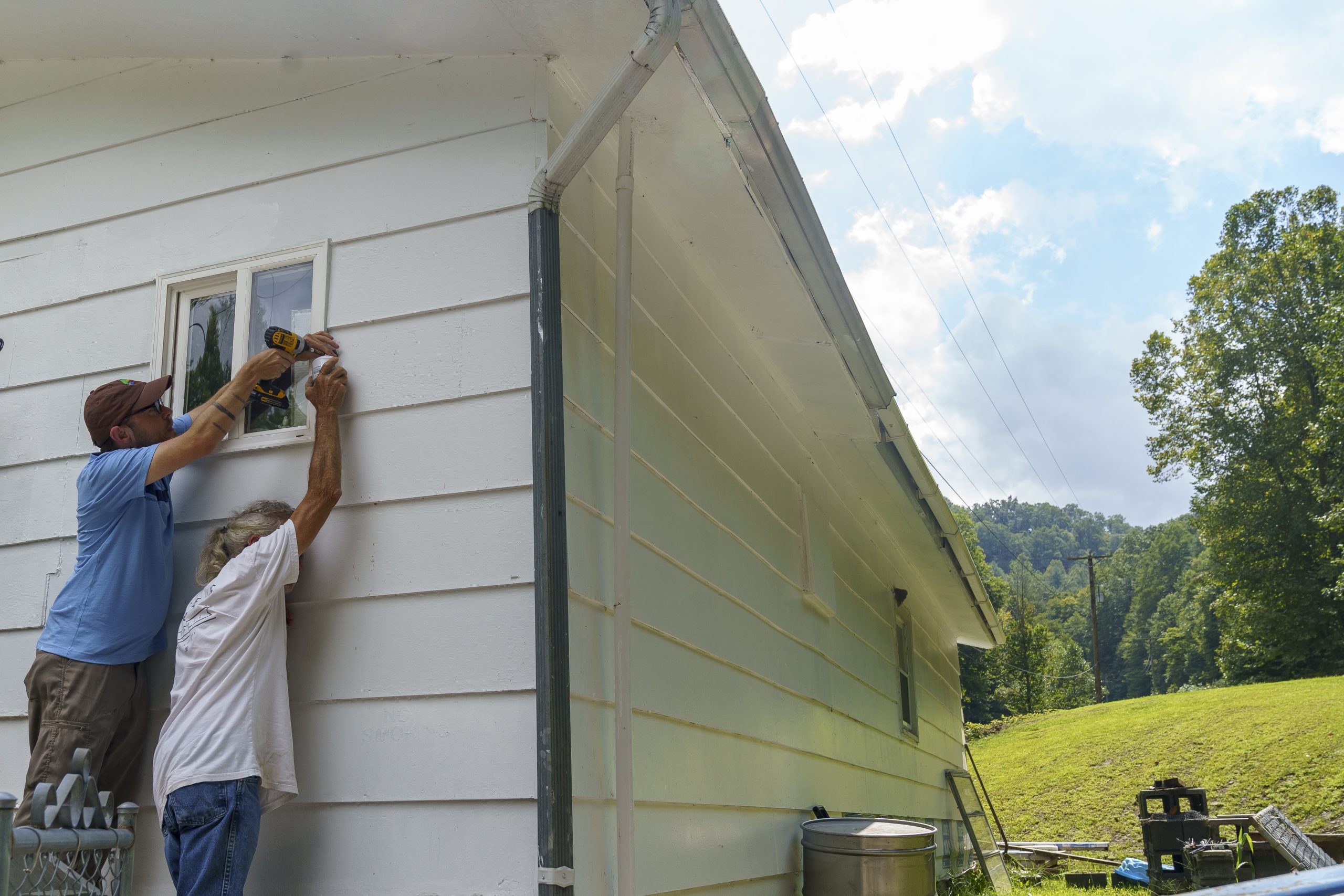Front Porch Blog
Appalachian Voices is launching a new partnership with Black By God, a Black-led news and storytelling organization, with a publication of the same name, in West Virginia. Black By God is dedicated to providing a more nuanced portrayal of African Americans in the Mountain State and the Appalachian region than is often found in other media sources. According to founder and publisher Crystal Good, the project, “aims to amplify Black voices and transform the media landscape of Central Appalachia, making every story a step towards empowerment and change.”

Black By God February 2022 cover, photo of Kiyia Brandon by Ann Michelle Mechail, republished with permission of Black By God.
Good and her team accomplish this by investigating and reporting on the civic, economic, community and cultural lives of Black West Virginians, the issues that affect them, and the ways that they impact their communities and the region as a whole.
“Our mission transcends storytelling; it’s about building a community where Black Appalachians feel seen, heard, and valued,” says Good. “Each article, each event, each partnership is BBG’s commitment to not only highlight the issues but to be a part of the solution for Black and isolated communities in West Virginia seeking a greater quality of life.”
Over the next two years, Appalachian Voices and Black By God will work together to develop stories covering air quality issues, community air monitoring and grassroots organizing in largely Black communities in Kanawha and McDowell counties in West Virginia. These stories will be published online and in print by both organizations.
Fine particulate matter, also known as PM 2.5, is an especially hazardous air pollutant that is associated with fossil fuel combustion, manufacturing, mining, transportation and agriculture. Exposure to high levels of PM 2.5 causes asthma attacks, pulmonary and respiratory conditions, and contributes to premature death, with these impacts hitting Black and Brown communities the hardest. Black Americans 65 and older are three times more likely to die from fine particulate pollution than White Americans of the same age.
Late last year, Appalachian Voices launched the Upper South and Appalachia Citizen Air Monitoring Project, or USACAMP, in partnership with individuals and community organizations across the region. This project entails the installation of small Wi-Fi-connected particulate matter monitors at homes, community centers, medical clinics and other locations throughout Kentucky, Pennsylvania, Tennessee, Virginia and West Virginia. Data collection commenced in late 2023 and will be ongoing for three years. Each quarter during that time, we will analyze our data and provide brief, digestible reports to volunteers, partner organizations, policy makers and other interested parties.

Willie Dodson and Jimmy Hall instal the Purple Air monitor to the side of his and Elaine Tanners house in Deane, Ky., in September 2023. Photo by Michael Swensen for Earthjustice
The EPA sets limits on how much fine particulate matter people should be exposed to. In a big win for environmental justice, the EPA recently announced that it is lowering this limit from 12 to 9 micrograms per cubic meter, measured as an annual average.
The EPA collects its own data to determine compliance with this limit, but most communities lack EPA air monitoring stations. The Upper South and Appalachia Citizen Air Monitoring Project is implemented in communities where EPA data is absent or insufficient.

The pins on this map represent community partners participating in the USACAMP. For our purposes, “Upper South” refers to Virginia, Kentucky, West Virginia and Tennessee while, “Appalachia” refers to all of West Virginia, Eastern Kentucky, Eastern Tennessee, Western Virginia, and Southwestern Pennsylvania.
Citizen science projects like the USACAMP are particularly important in West Virginia, as they are under attack within state government. During the last state legislative sessions, some West Virginia lawmakers sought to undermine community air monitoring programs, proposing a bill that would prevent the state Department of Environmental Protection from reviewing and evaluating community air monitoring data, and prohibiting courts from considering such data.
Appalachian Voices joined with groups including the West Virginia Environmental Council, West Virginia Citizen Action Group and West Virginia Rivers Coalition in opposing this bill, which passed the state house but ultimately died in the Senate before the end of the legislative term. Even if a similar bill is reintroduced and passed in a future session, USACAMP data will be shared directly with the EPA, which maintains oversight authority over the DEP.
Independent reporting on state policies of this sort, and their impact on West Virginians is central to Black By God’s mission.
“Through Black By God, we’re not just reporting on public health; we’re sparking conversations and actions that lead to real-world change for our communities,” Crystal Good says.
Good is hopeful that increased coverage can help to galvanize community members and policy makers to find solutions to air quality problems, having seen the independent reporting of Black By God have this sort of impact in the past.
“Our article last year on West Virginia’s Authentic Freedom Day led to this year’s proclamation and a bill by Del. Rowe to make it a holiday honoring the enslaved humans of West Virginians authentic history.”

Crystal Good, founder/ publisher of Black By God
Appalachian Voices is looking for more air monitor hosts in select communities in West Virginia (Keystone, Northfork, Institute, and parts of the Coal River Valley). To host a monitor, you just need electricity and a Wi-Fi connection. The monitors use minimal electricity and bandwidth. If you would like to monitor air quality in your community, and you live in one of the areas listed above, contact willie@appvoices.org.
Black By God’s publication can be read online at BlackByGod.org, and their newspaper is distributed for free at libraries, coffee shops, community centers and other locations around West Virginia.
PREVIOUS
NEXT

Leave a comment
Your email address will not be published. Required fields are marked *

Leave a Comment